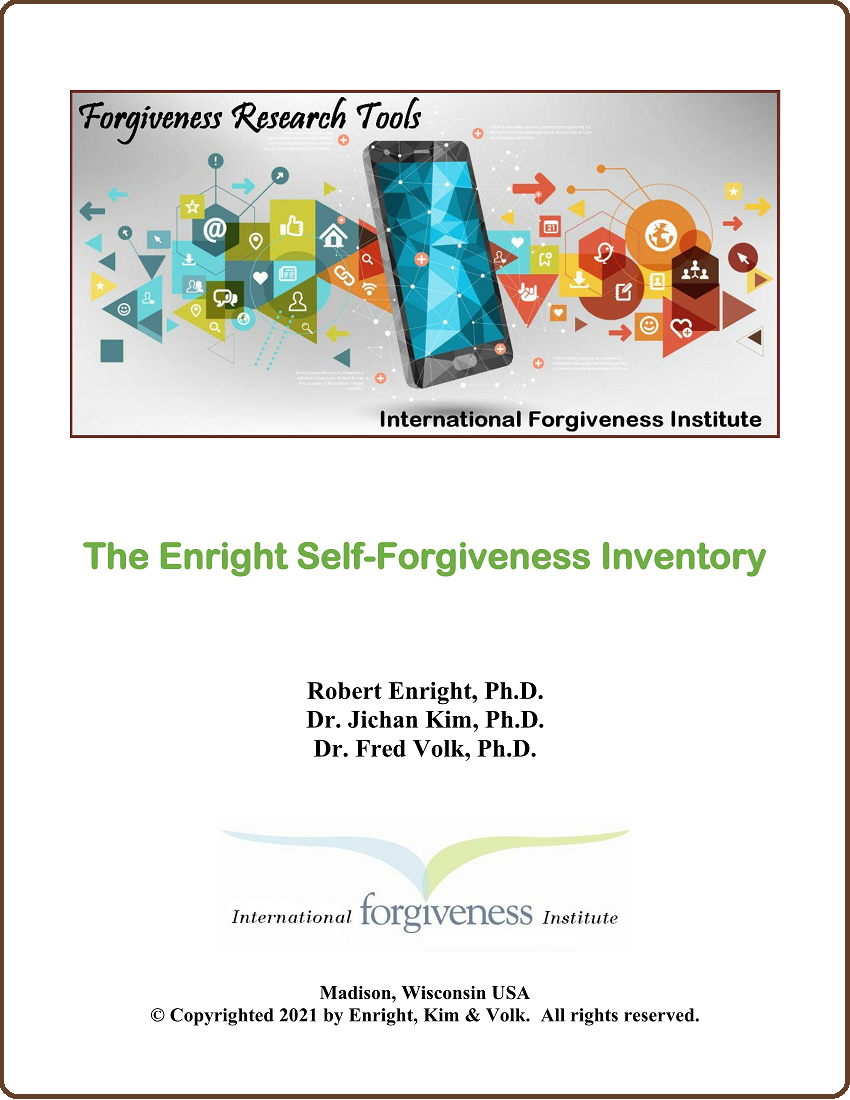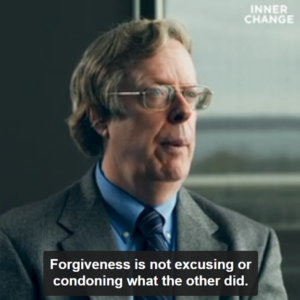Tagged: “forgiveness”
Are you sure that forgiveness is a process? I have been taught that if I say, “I forgive you,” that is sufficient and forgiving has been completed.
Saying, “I forgive you” is a good step if you truly mean it from the heart. People can say, “I forgive you” to a boss who requests forgiveness, but the “I forgive you” is said insincerely to keep a job, as resentment remains. In other words, saying “I forgive you” can be part of forgiving, but please keep in mind that forgiving includes an internal transformation of reduced anger and a softened heart toward the one who offended. If deep anger remains in your heart, then you may need to reduce that anger, otherwise you could be trapped with resentment for a long time to come. That would not be fair to you or to a genuinely improved relationship.
Forgiveness Research Tools Flying Out the Door and Around the World
When The Christian Science Monitor called him “the father of forgiveness research” nearly 20 years ago (Dec. 19, 2002), Dr. Robert Enright, a University of Wisconsin-Madison educational psychology professor, had just completed what the news organization called “the first study ever to show a cause-and-effect finding regarding physical health. . . and forgiveness.”
Today, as Dr. Enright nudges close to 37 years of forgiveness study and interventions, his research tools and techniques have become the preferred instruments of social scientists and researchers around the world. To stimulate even further growth in the burgeoning field, the forgiveness pioneer is giving his research tools away at no cost and with no strings attached.
On April 20 of this year, Dr. Enright announced that the non-profit educational organization he founded–the International Forgiveness Institute (IFI)–would provide his highly regarded scientific research tools absolutely free to any forgiveness researcher who requested them. In just the four months since then, the IFI has received and fulfilled orders for 252 copies of his individual tool documents from researchers in 21 foreign countries and 27 US states.
The free research tools available from the IFI and the number of copies distributed since April include:
- The Enright Self-Forgiveness Inventory (ESFI) – 76 Requests
This measure is based on the conceptualization of forgiveness as a moral virtue. The ESFI is a 30-item scale featuring six subscales with five items each. Five additional items at the end of the scale allow for measurement of Pseudo Self-Forgiveness (PSF). Although several competing self-forgiveness measures exist, Dr. Enright’s is the only one that captures the idea that self-forgiveness is a moral virtue that includes behavior toward the self.
- The Enright Forgiveness Inventory-30 (EFI-30) – 85 Requests
This tool is a shorter version of the Enright Forgiveness Inventory for Adults that has become the interpersonal forgiveness measure of choice for research professionals in the U.S. and abroad since its development in 1995. The EFI-30 reduces the number of items from 60 to 30 for the purpose of a more practical assessment of this construct. Data from the United States were used in the creation of the new measure and applied to seven nations: Austria, Brazil, Israel, Korea, Norway, Pakistan, and Taiwan to develop its psychometric validation.
- The Enright Group Forgiveness Inventory (EGFI) – 44 Requests
The EGFI has 56 items across seven subscales with each subscale having eight items. Those subscales measure a group’s motivation and values regarding forgiveness, peace, and friendliness toward the other group. The instrument is a valuable tool that could enhance peace efforts in the world. The EGFI was validated and published earlier this year by Dr. Enright and a team of 16 international researchers who collected data from 595 study participants in three different geographic and cultural settings of the world—China and Taiwan, Slovenia, and the US.
- The Enright Forgiveness Inventory for Children (EFI-C) – 47 Requests
The EFI-C is an objective measure of the degree to which a child forgives another who has hurt him or her deeply and unfairly. It is a 30-item scale similar to the 60-item adult version and is presented orally to very young children and in writing to those who can read well. Thanks to a researcher in Pakistan, the EFI-C is now available in the Urdu language—the native language of an estimated 230 million people, primarily in South Asia.
“Making these tools available to researchers at no cost is one way to grow the repository of forgiveness knowledge,” Dr. Enright explained. “This area of moral development has produced significant advancements in the areas of education, medical treatment, and therapy, so why not encourage others to help expand that information base?”
“There’s no getting around it – forgiveness is good for you and holding a grudge is not.”
-The Christian Science Monitor
- Learn more and order Dr. Enright’s free tools on the Forgiveness Research Tools page.
- Read how the EFI-30 was tested and validated in 8 countries around the world.
- Read the entire forgiveness article in The Christian Science Monitor.
This is what forgiveness is not. . .
A newly-released video interview with forgiveness expert Dr. Robert Enright called “This is what forgiveness is not” is now available to view at no cost on the website Inner Change.
The 3 min. 22 sec. video was recorded by a film production studio based in Switzerland that has cinematic staff in the US and more than a dozen other countries around the world. It is one of 13 short video segments that Inner Change has recorded with Dr. Enright and which it will release over a 2-year period. Thus far, five of the Dr. Enright interviews have been made available:

Dr. Robert Enright, founder of the International Forgiveness Institute.
- This is what forgiveness is not – Dr. Enright outlines four aspects of what forgiveness is not:
- It is not excusing or condoning.
- It is not forgetting but remembering in new ways.
- It does not necessarily mean reconciliation although it could happen if the other becomes trustworthy.
- When you forgive, you do not throw justice away, you bring it alongside.
- The Essence and Definition of Forgiveness (2 min. 15 sec.) – In this interview, Dr. Enright defines forgiveness from an interdisciplinary, cross-cultural, and interfaith perspective that basically includes what Socrates would call the “essence” or “core” of forgiveness.
. - How I Became Involved in Forgiveness Studies (4 min. 16 sec.) – Dr. Enright explains how after years of studying moral development at the behest of his employer, the University of Wisconsin-Madison, he asked himself, “What might make a difference in the world in people’s lives?” The answer he came up with in 1985 was “the virtue of forgiveness” which he saw as a way to heal from the injustices we all face.
. - The Two Paradoxes of Forgiveness (1 min. 0 sec.) – In this brief segment, Dr. Enright outlines the two paradoxes (apparent contradictions that are not contradictions) of forgiveness: 1) by forgiving, you are giving unexpected goodness to the person who hurt you; and, 2) in the process, you become stronger and emotionally healed.
- Learning to Forgive in the Small Things (3 min. 19 sec.) – By practicing forgiveness with the smaller hurts in your life, what Dr. Enright calls “exercising your forgiveness muscles,” you can become forgivingly fit and more easily handle the larger injustices in life.
The Inner Change website includes interviews with psychologists, spiritual teachers, activists, and neurologists. Those interviews are part of the website’s “Peace Video Library” where visitors can “discover what it means to be fully human, what resources we all share, how we can tap into our full potential as humans.” Other website features include musical meditation segments following each video and a collection of more than 30 music videos all with original songs recorded at Chernobyl (the site of the 1986 nuclear power plant disaster in the Soviet Union) and the nearby ghost town of Prypiat in Northern Ukraine.
My Forgiveness Commitment
I have made a commitment to forgive members of my family who have hurt me psychologically many times. They may be sociopathic, complicating forgiving. However, making the choice to forgive starts the process and realizing forgiveness is a process is for me at least essential to “hang in there”. I say to myself, ‘ My positive intention is to forgive.’ This seems to help as I know I’m on a hero’s journey to courageously forgive. Which gives me my power back. The power over how I feel.
Gary Manzo
Keeping Anne Gallagher’s Memory and Work Alive
Robert
In Memoriam: Anne Gallagher, Seeds of Hope
It is with deep sadness that we announce the passing of a true patriot for peace, Anne Gallagher of Dublin, Ireland (August 7, 2013).
Anne started the peace organization, Seeds of Hope, in Ireland as a way to counter the after-effects of The Troubles. Even though the peace accord was signed in 1998, hearts were still embittered by the struggles that began to erupt in early 1972 with Bloody Sunday. Some of Anne’s friends and relations took up combat and were part of paramilitary organizations in Ireland and Northern Ireland. Anne, in contrast, sought dialogue as a way to peace.
Anne was instrumental in the International Forgiveness Institute’s transition to forgiveness education in Belfast. She tirelessly set up meetings with us at various schools such as Ligoniel, St. Vincent de Paul, and Mercy Primary School. Because of Anne’s endorsement of us, doors flew open and within about one month of trying, we were accepted into schools within the inter-face areas of the city (where contentious groups live segregated lives but in close proximity to one another)..
I recall vividly in 2003 sitting with three ex-combatants who wanted to know more about forgiveness education. They were unsure if it was a good idea. Anne set up the meeting. You see, we needed their permission to go into a particular school because some of the ex-combatants informally controlled their neighborhoods. One of them, battle-tested, said to me, “My son is in that school. Forgiveness will make him weak.” I swallowed hard and asked, “Do you want your son to grow up and live as you have?” He bowed his head and with love in his heart for his son said, “No.” It was then that he gave us permission to enter the school.
Anne was always close to danger like this. She did not care, even though some of her brothers were scared for her. Yet, she had a spark in her eyes and a conviction deep within that peace must be sought even if it meant putting oneself on the line at times.
Anne Gallagher represents peace in Ireland. We at the IFI will do our best to keep alive her vision for Seeds of Hope in each human heart. Peace be with you now, Anne.
Robert
Author’s Note: Read about the Northern Ireland Troubles, about Bloody Sunday, and about learning to forgive in the “Seeds of Hope Ex-Prisoners Think Tank Report” co-authored by Anne Gallagher (whose four brothers became involved in the Northern Ireland conflict and served long prison sentences, one being shot dead upon his release.)
— Anne Gallagher photo by Brian Moody



